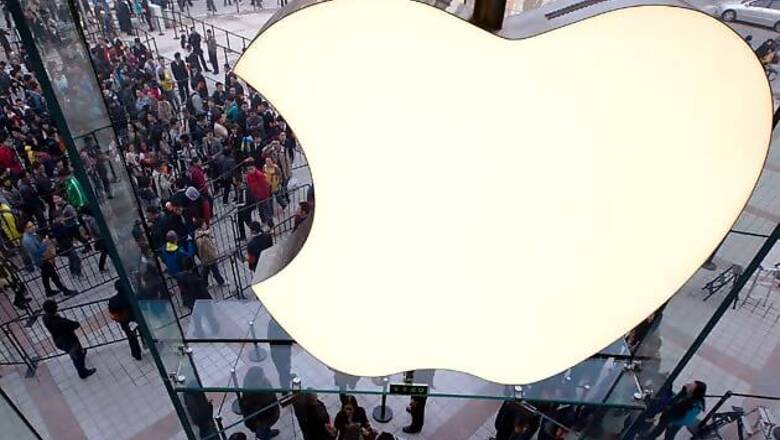
views
Sydney: Apple blamed "old-fashioned" record companies, film studios and TV networks for the inflated prices Australians pay compared with US consumers for digital downloads, as it defended its pricing strategy on Friday.
Executives from Apple, Adobe Systems and Microsoft were grilled by a special Australian parliamentary committee tasked with investigating allegations of price gouging raised by consumer watchdogs.
Software and hardware products in Australia sell for an average of 50 per cent more than their US equivalents, according to a 2012 survey of 186 songs, games, programs and computers by Choice, a not-for-profit consumer advocacy group.
As soaring cost-of-living bills for basic services hurt the popularity of the minority Labor government ahead of a September 14 election it is widely tipped to lose, lawmakers are considering restricting the ability of companies to set prices in Australia.
Apple, Adobe and Microsoft executives told lawmakers the higher prices reflected factors including Australia's 10 per cent goods and services tax, higher labour costs, copyright issues and geographical product differentiation.
Tony King, the vice president for Apple Australia, New Zealand and South Asia, said pricing on some products like the iPad mini and Final Cut Pro software was about the same as in the United States.
But at A$19.99 ($20.87), the Australian price of Justin Timberlake's album 20/20 Experience on Apple's iTunes music store is about double the $10.99 charged in the United States. AC/DC's Back in Black is marked up 70 per cent for Australian fans.
King said the pricing of digital content was based on wholesale prices set via negotiated contracts with record labels, movie studios and TV networks.
"The content industry still runs with perhaps old-fashioned notions of country borders or territories or markets," King said, adding that Apple had pushed content owners for lower Australian pricing.
Asked why Apple, the dominant provider of digital entertainment downloads, could not use its clout to knock down wholesale prices, King said responsibility ultimately lay with content providers.
"The cards are in the hand of the folks who own the content, that is not in our hand to play," he said.
"Evasive" answers
The three companies were accused of stonewalling the pricing inquiry after they initially declined to send executives to answer questions publicly. Adobe and Microsoft had provided written submissions while Apple did not respond at all.
The committee labeled some of the executives' answers as "evasive" and greeted others with skepticism.
A particular bone of contention was the need for so-called geo-blocking, under which companies prevent Australia-based web users from purchasing products at cheaper rates on US sites.
Australians have to fork out A$3,175 ($3,300) for Adobe's CS6 Design and Web Premium suite, which Americans can buy for just $1,899.
Adobe Australia Managing Director Paul Robson said Adobe's Creative Cloud suite, which is bought on a A$50-a-month subscription basis, was priced on par with the United States and this was "the future of the way we will deliver our technology."
Committee member Stephen Jones said the subscription software placed "digital handcuffs" on users, forcing them to keep paying to continue accessing their files.
Committee deputy chairman Paul Neville cited the example of a suite of Microsoft products that cost the equivalent of A$2,324 in the United States, A$3,105 in Canada, A$2,323 in Singapore and A$4,136 in Australia.
"It seems what you put to us, you're charging what you can get away with in any market," Neville said to Microsoft Australia Managing Director Pip Marlow, who denied the charge.
"If we price the products too high, consumers will vote with their wallets and move elsewhere, we have a very competitive landscape," Marlow told the committee in Canberra.




















Comments
0 comment